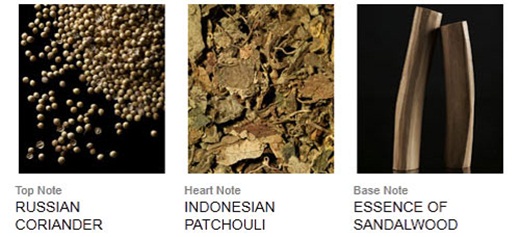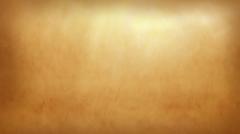Patchouli Imperial is a crisp, aromatic, desiccated, very woody men’s cologne that is far from the patchouli soliflore that its name would imply. It starts off as a men’s fougère, before turning into a scent with faint ties to Guerlain‘s L’Instant Pour Homme and, to a much lesser extent, Habit Rouge. Eventually, it ends up as a dry woody fragrance with an ambered touch, but little character.
Patchouli Imperial is part of Dior’s prestige line of fragrances called La Collection Privée. (The line is sometimes called La Collection Couturier on places like Fragrantica and Surrender to Chance, but I will go with the name used by Dior itself on its website.) The eau de parfum was released in 2011, the creation of François Demarchy, the artistic director and nose for Parfums Dior. Dior describes the scent as follows:
Potent and sensual, Patchouli is an essential House of Dior ingredient that took up its place at the beginning of the New Look revolution in 1947.
Full of elegance, François Demachy’s composition, Patchouli Impérial, is a celebration of this legendary oriental ingredient with notes as sultry as they are sophisticated. “Patchouli is a major note, the most animal of all the plant notes. It is refined, revealing unprecedented elegance.”
Dior’s very limited — and I would argue, very incomplete — list of notes only mentions:
Russian Coriander, Indonesian Patchouli, Indian and New Caledonian sandalwood.
Fragrantica voters add in cedar, Sicilian mandarin, and Calabrian bergamot. I agree with them, but would also include some other things. What I smell is:
Lavender, Bergamot, Lime, Virginia Cedar, Russian Coriander, Indonesian Patchouli, Cocoa, Indian and New Caledonian/Australian sandalwood, and something ambered.
Patchouli Imperial opens on my skin with cologne and fougère traits of lavender, bitter lime, bitter dried orange peel, bergamot, lemony peppered coriander, and dust. It is followed by a sour wood note that is simultaneously green, unripe, and desiccated. Dustiness infuses everything, especially the coriander which smells old, stale, and sharp. It’s not the dustiness of patchouli, but rather, of a dirt road or a crypt.
The wood note isn’t appealing either, as it is slightly off, almost like rancid “sandalwood.” A few months ago, I received a concentrated Australian sandalwood oil, and it smells extremely close to the aroma in Patchouli Imperial. The oil had an oddly medicinal, mentholated edge which isn’t apparent here, but it had the same “off,” green tonality that eventually turned a bit creamy like sour buttermilk.
The dustiness is quite something. It leaves an itchiness at the back of my throat, but more than that, it creates a staleness around the notes that robs the citric elements of all their brightness and zestiness. It also amplifies the definite herbaceous quality in Patchouli Imperial, especially the lavender which has all the dried, pungent, sharp characteristics that I loathe so much. The overall effect is to a create a fragrance that is as much a dry woody scent as it is an aromatic, fougère cologne.
Other notes soon arrive to join the bitter citruses, pungent lavender, sour green woods, and dried tonalities. At first, it is cedar which is equally dry and musty. Then, there is a hint of creamy sweetness that cuts through the stale, bitter, and arid accords, but it is very muted. More noticeable is a sour medicinal element that appears after about five minutes. It is sharp and pungent, but it doesn’t smell like the camphorated, leafy darkness of patchouli. Instead, it has an almost leathered greenness that feels like a distant cousin to galbanum.
Patchouli Imperial is such an odd mix of sourness, greenness, dark brown desiccation and aridity, dust, staleness, and pungency. Dried lavender, dried bitter orange peel, bitter lemon, heaping amounts of peppered coriander, dust, dry cedar, unripe sour buttermilk “sandalwood,” and more dust — it’s really unpleasant to my nose. I’ve tried Patchouli Imperial a few times over the last 6 months, and most recently again in Paris’ Charles de Gaulle airport in October, and each time, I’ve recoiled at its opening. People sometimes use the term “old lady” as a derogatory way to describe fragrances; I dislike the term as something that is both sexist and not particularly useful as a descriptor, but I’ve often wondered why no-one describes fragrances as being “old man” in nature.
Well, let me use it here. Patchouli Imperial has a sour, stale, musty “old man” aroma. It reminds me distinctly of an old Greek man I once knew whose old-fashioned fougère cologne mixed with a definite dustiness from his old books, as well as a subtle whisper of sour staleness from his unshaven face and his ancient, brown cardigan. He was a very sweet chap, but I wouldn’t want to smell like him.
Fifteen minutes in, a creamy cocoa powder pops up in the sidelines, adding to the discordant jangle. The stale coriander powder grows sharper, as do the lemon and lime. The sour green sandalwood darts in and out, toying with the musty woodiness of the cedar. Thankfully, the pungency of the lavender softens a little, and that brief flicker of leathered greenness vanishes. The desiccated woodiness in the base remains, however, and my throat feels scratchier than ever. It has to be something synthetic, especially as there is something distinctly sharp in Patchouli Imperial when smelled up close.
It takes about 25 minutes for Patchouli Imperial to soften, and for those sharp, pungent edges to get smoothed out. The fragrance’s sillage drops to a few inches above the skin, and turns mellower. It’s still incredibly dry, however, with a bouquet that is primarily woody lavender cologne with various dusty bits, an abstract patchouli, lemon, peppered coriander, and cedar. The patchouli that is starting to appear isn’t spicy, sweet, ambered, or mellow. It’s merely another form of dry woods with a dusty, herbal facet. The subtle whispers of cocoa and that green, unripe “sandalwood” in the base give Patchouli Imperial a very distant kinship with Guerlain‘s L’Instant Pour Homme Eau de Toilette (“LIDG”). Yet, the Dior has none of the latter’s black tea, its floral tonalities, or its creamy sweetness. At times, the dry citric and fougère elements remind me of Habit Rouge’s opening, but that fragrance was never sour, stale, or musty either.
Patchouli Imperial eventually loses its unpleasant start. The citric aromatics and lavender recede to the sidelines at the end of the first hour, but it takes a while longer for the creamy undertone and cocoa to fully emerge and to turn the fragrance into something less stale. The notes blur into each other, and Patchouli Imperial becomes a soft, gauzy, sheer haze of citric aromatics, dry woods, dry patchouli, dry cocoa powder, and some abstract creaminess. Tiny whispers of lavender and peppered coriander lurk underneath, but they’re muffled. Patchouli Imperial is a skin scent after 90 minutes, though the fragrance is still strong when sniffed up close.
Around 2.25 hours into Patchouli Imperial’s development, the fragrance takes on the characteristic that will remain for a while: a blurry soft, citrus, patchouli, woody scent. The amount of cocoa powder waxes and wanes, but the note feels increasingly nebulous and abstract as the hours pass. The best way I can describe it is as something that smells like dry sweetness, instead of actual chocolate. The patchouli also feels abstract, verging more an a generalized dry woodiness that has a hint of some sweetness than any actual, distinct “patchouli” in its own right. The citrus element finally fades away around the middle of the fourth hour, and an abstract “ambery” quality takes its place. In its final drydown, Patchouli Imperial is a nebulous, gauzy whisper of dry woods just lightly flecked with some ambered sweetness and a hint of powder.
Like all its Dior Privé siblings, Patchouli Imperial has moderate sillage and good longevity. At first, the fragrance is quite potent and strong, but the projection drops after 90 minutes, and Patchouli Imperial wears close to the skin for the rest of its duration. Dior intentionally wants its fragrances to be refined, unobtrusive, discreet, but strong and long-lasting, and Patchouli Imperial is no exception. All in all, it lasted a little over 9 hours on me. On people with normal skin, the more oriental or ambered Privé fragrances can last much longer.
I’m not at all enthusiastic about Patchouli Imperial. I’m not judging it as a patchouli fragrance, because, by and large, it isn’t one in my opinion. I’m judging it as a men’s cologne, and I think there are better takes on this particular profile than Patchouli Imperial. Its opening is horrid and incredibly unpleasant. While the fragrance subsequently improves and loses that discordant, jangling, dry, sour staleness, it merely devolves into a generic citric, dry woody scent before ending up as a slightly less dry, ambered, woody blur. I should probably repeat the word “dry” a few more times, but I think you’ve gotten the point by now.
You might argue that Patchouli Imperial is a refined take on patchouli, but it wasn’t on my skin. It felt uninteresting, average, and unoriginal more than anything else. For patchouli-mixed scents, I think you’d do far better with Guerlain’s L’Instant Pour Homme in either concentration (as there are olfactory differences between the two) or Chanel‘s Coromandel. For fragrances that primarily focused on patchouli, there are a host of options that I would recommend before this one, starting with Profumum‘s Patchouly. On the other hand, I think men who hate patchouli may enjoy Patchouli Imperial. By their standards, the note may seem very clean, fresh, and refined.
On Fragrantica, reviewers are more enthusiastic than I am about Patchouli Imperial. Some seem to have experienced much more actual patchouli than I did. Others compare the scent to Givenchy Gentleman or Nasomatto’s Absinth. I haven’t tried either to be able to compare. A number of people mention both amber and powder in the drydown, while a few bring up mentholated notes in the start. The comment that amused me the most came from a poster who said he got the most bizarre unsolicited comments whenever he wore Patchouli Imperial from friends who “associate it with along the lines of Caveman, Mummy’s Tomb, DOM, Closet filled of mothballs etc.” I suspect that is the crypt-like dust that dominates Patchouli Imperial’s start.
I generally really like the Dior Privée line, but Patchouli Imperial is a complete pass for me. I don’t enjoy it as a cologne, and it’s definitely not my idea of a beautiful patchouli.









